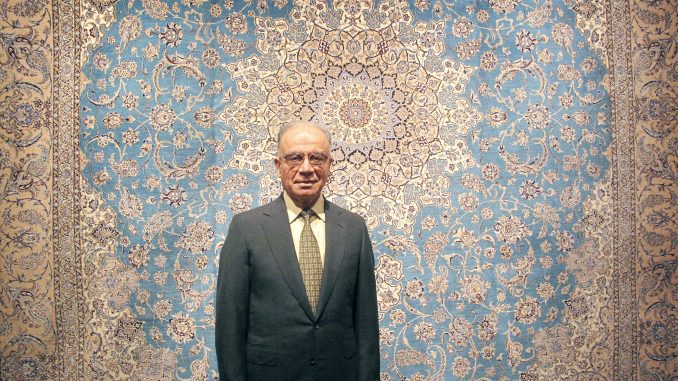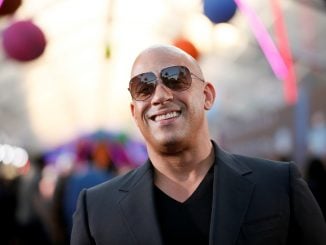
In 100,000 square feet of showroom space, Zaki Uddin Khalifa knows every single one of the 12,000 rugs because he picked each one out himself. Traveling five months per year, Zaki ventures to Iran, Turkey, and his native land of Pakistan in search of the finest handcrafted Oriental rugs. “You’d be hard-pressed to find another rug in the world,” Zaki said. The unique, one-of-a-kind selection has established his business as the largest selection in the United States. If it was up to his grandfather, who Zaki was raised by, he would have followed in his footsteps as a lawyer or cabinet member in Pakistan. His interest in rug making began at the age of six and today has landed him the reputation as “The King of Oriental Rug Dealers.” Zaki lays out two rugs, both priced at around $20, noting each has 20 knots per square inch. In comparison, a $14,000, 16-by-19 inch rug contains 4,900 knots per square inch. “Of course we have several hundred quality levels that are all on the floor,” he says. The more intricate the design, the more knots per square inch. Meticulous attention to detail resonates with quality. For the $14,000 rug barely the size of a doormat, from start to finish it took two and a half years to complete.”The designer has not just drawn the design on one sheet of paper, the designer has explained all the thousands of rows of knots that are to be tied here using maybe 70, 80, 90, 100 sheets of paper,” said Zaki, describing the process. “There are thousands of rows of knots here. Each row of knots detailed here, it’s a shorthand of rug language, as it’s called, and the weaver is trained to decipher that.” Zaki himself has learned to decipher the language, his collection is unmatched as well as his reputation. In 33 years, there’s never been a complaint filed through Better Business Bureau. An almost impossible feat, but when meeting Zaki it is easy to see why. His clients come from all over the world. A large showroom in the back is where he houses the most prized possessions. Sprawling, handmade silk rugs look more like art than anything you’d consider laying on a floor. One changes colors as you walk around it. It is mesmerizing but also exudes unattainableness, yet it is Zaki’s. Zaki’s true contributions are not his collection of unique rugs, but what he is has given to the community. He arrived to the United States by plane on July 4, 1976, after knowing he wanted to settle somewhere in the Western world. Growing up in Lahore, the second largest city in Pakistan, he believed he’d work in New York but found himself in High Point after his former professor and close friend, Dr. Wheeless, invited him to come stay with his family. Now 72, Zaki has donated three buildings to the community; the $1.5 million High Point Chamber of Commerce, the High Point Community Against Violence, and the Foster Children of North Carolina agency. Zaki is a devout Muslim, when he arrived in High Point there was only one other Muslim family. Today, there are 700. Zaki has become the go-to person for community discussion on the ever-changing political and public climate on views towards immigrants, especially after the heated travel ban imposed by President Donald Trump. “The rhetoric is so negative lately, one needs to speak out, it’s the first time I feel that way,” he says. “We should get to know people, not shun them for who they are.” Zaki has been recognized as one of the 50 Most Outstanding Asian Americans in Business, received the Minority Business Advocate of the Year Award from the High Point Chamber of Commerce, and the BB&T Distinguished Citizen of the Year Award. When walking into the almost overwhelming showroom, it is amazing to think about how Zaki started in 1977 with 3,000 square feet and has grown the business into what it is today. While the rugs are the showcase and spotlight, the true heart of Zaki’s story is the philanthropy and contribution to the community from a man who at the end of a day, is an immigrant himself.



